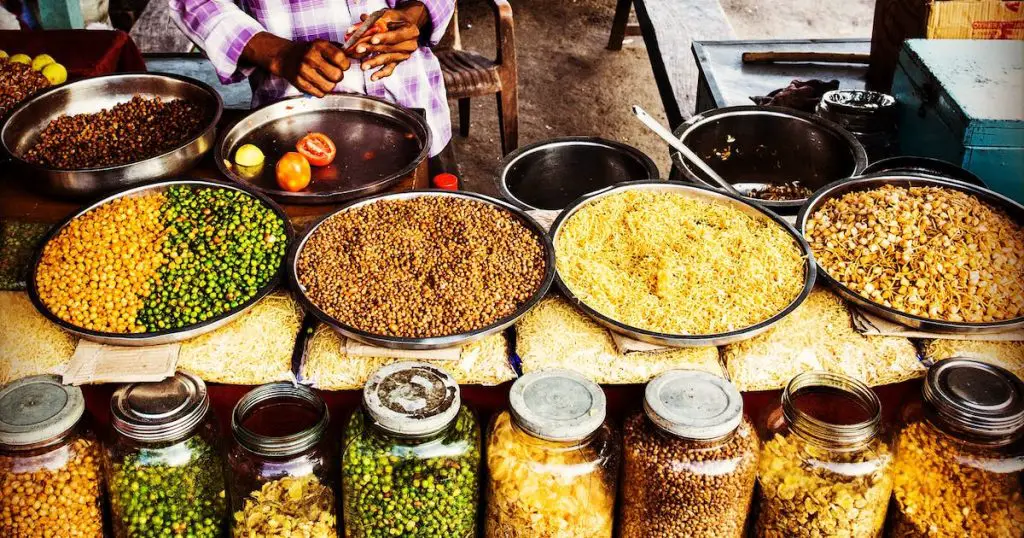The relationship between agriculture and food culture is a tale as old as civilization itself, and nowhere is this more evident than in the charming city of Prescott. Nestled in the mountains of Arizona, Prescott’s unique food culture has been significantly shaped by its agricultural practices.
This comprehensive exploration delves into the profound impact of agriculture on Prescott’s food culture, tracing its roots from historical practices to modern culinary innovations.
Discover what we have in store! Visit our product page now for exclusive deals and must-have items. Don't miss out!

Through this journey, we’ll discover how local agriculture not only feeds the body but also enriches the cultural fabric of this vibrant community.
Historical Perspective
Prescott’s agricultural history is a rich tapestry that mirrors the evolution of farming practices over the centuries. Initially, the region’s indigenous tribes utilized the fertile land, cultivating crops like corn and beans.
With the arrival of European settlers, new farming techniques were introduced, significantly altering the agricultural landscape. The late 19th and early 20th centuries marked a pivotal era, with the introduction of irrigation systems and modern farming equipment revolutionizing crop production.
Local Agricultural Products
Prescott’s agricultural bounty is diverse, ranging from orchard fruits like apples and peaches to livestock such as cattle and sheep. This variety ensures a year-round supply of fresh, local produce.
Seasonal variations play a critical role in shaping the availability of these products. Summers bring an abundance of fresh fruits, while winters focus more on root vegetables and preserved goods. The city’s commitment to organic and sustainable farming practices further enhances the quality and flavor of these local products.
Farm-to-Table Movement
The farm-to-table movement has found a fervent following in Prescott. It started as a niche concept but quickly became mainstream, driven by a desire for fresh, locally sourced food.
This movement has profoundly influenced local restaurants, many of which now proudly feature seasonal menus based on locally sourced ingredients. It’s not just about food; it’s a celebration of local agriculture and community.
Agricultural Influence on Local Cuisine
Prescott’s cuisine is a reflection of its agricultural roots. Traditional dishes, often derived from Native American and pioneer recipes, showcase the simplicity and freshness of local produce.
Modern Prescott chefs, however, are not afraid to experiment. They blend classic recipes with contemporary techniques, creating innovative dishes that still pay homage to the area’s agricultural heritage.
Economic Aspects
Agriculture is a cornerstone of Prescott’s economy. It provides jobs, supports local businesses, and contributes to the city’s overall economic health.
However, this sector faces its share of challenges, from market fluctuations to increasing production costs. Yet, it also presents numerous opportunities, particularly in the realms of agritourism and value-added products.
Environmental Impact
Sustainable agriculture in Prescott goes beyond just producing food. It encompasses a broader commitment to environmental stewardship, with farmers adopting practices that conserve water, improve soil health, and reduce carbon footprint.
Challenges such as climate change and water scarcity are very real, but local farmers and the community are actively engaged in finding innovative solutions to these problems.
Social and Cultural Aspects
Agriculture is more than just an economic activity in Prescott; it’s a cultural cornerstone. It shapes traditions, fosters community spirit, and brings people together.
Festivals celebrating harvests and seasonal produce are common, and educational programs in schools and community centers help to instill an appreciation for agriculture in younger generations.
Technological Advances in Agriculture
Technological innovations have significantly impacted Prescott’s agricultural landscape. From precision farming techniques to advanced irrigation systems, these innovations enhance productivity and sustainability.
Looking to the future, technology holds the promise of further advancements, with potential breakthroughs in areas like biotechnology and automation poised to redefine agriculture in Prescott.
Culinary Tourism
Prescott has become a destination for culinary tourists, drawn by its unique fusion of agriculture and cuisine. Agritourism offers visitors a chance to experience farm life, from picking fresh produce to participating in cooking classes.
This growing interest boosts the local hospitality industry and showcases the city’s commitment to celebrating its agricultural roots.
Government and Policy
Government policies play a crucial role in shaping the agricultural sector. From land-use regulations to subsidies and grants, these policies can either hinder or help local farmers.

Prescott has seen a trend towards more supportive policies, recognizing the importance of agriculture in the city’s overall well-being.
Challenges and Resilience
The resilience of Prescott’s agricultural sector is tested regularly, facing challenges like market fluctuations, water scarcity, and pest infestations.
Yet, the community’s response, marked by adaptability and innovation, serves as a testament to its resilience. Local farmers have turned challenges into opportunities, finding new ways to thrive.
Health and Nutrition
The connection between agriculture and health is evident in Prescott. The availability of fresh, locally-grown produce contributes significantly to the community’s overall health and nutrition.
Educational initiatives focusing on the benefits of farm-to-table eating habits have increased awareness about the nutritional value of consuming fresh, local produce. This has led to a growing interest in organic and non-GMO foods, further supported by Prescott’s agricultural community.
Community Engagement and Collaboration
The strength of Prescott’s agricultural sector is bolstered by the community’s active engagement and support. Local farmers markets, where producers and consumers interact directly, are a testament to this collaboration.
Several successful projects have emerged from these collaborations, including community gardens and farm-share programs. These initiatives not only strengthen the bond between residents and local farmers but also help in promoting sustainable agricultural practices.
Preservation of Agricultural Heritage
Preserving Prescott’s agricultural heritage is crucial to maintaining its unique identity. Efforts by local historical societies and museums play a vital role in this, offering educational programs and exhibitions that highlight the city’s farming history.
Integrating this heritage into modern farming practices not only preserves traditional methods but also enriches the city’s cultural tapestry, ensuring that these time-honored practices are not lost to future generations.
The Future of Agriculture in Prescott
The future of agriculture in Prescott is a blend of tradition and innovation. While respecting and maintaining its rich agricultural heritage, the city is also embracing new technologies and practices.
Emerging trends like vertical farming and hydroponics are being explored as solutions to some of the challenges faced by traditional farming methods. This forward-thinking approach is essential for the sustainable growth of Prescott’s agricultural sector.
Global Influences and Comparisons
Prescott’s agricultural practices do not exist in isolation; they are part of a larger global context. By examining and learning from international agricultural practices, Prescott can gain insights into innovative and sustainable farming methods.
The impact of globalization on local agriculture is also significant, influencing everything from crop choices to marketing strategies. Understanding these global trends is crucial for Prescott’s agricultural sector to remain competitive and resilient.
Food Safety and Quality
Ensuring food safety and quality is paramount in Prescott’s agricultural sector. Strict regulations and standards are in place to guarantee that the produce reaching consumers is safe and of high quality.
Farmers in Prescott are committed to upholding these standards, recognizing that consumer trust is essential to their success. This commitment to quality not only benefits consumers but also enhances the reputation of Prescott’s agricultural products.
The Role of Media and Communication
Media and communication play a pivotal role in shaping public perception and awareness of agricultural issues in Prescott. From local news coverage of farming challenges to social media platforms promoting local produce, the media is a crucial partner in educating and engaging the community.

By highlighting success stories and promoting awareness of agricultural initiatives, the media helps foster a deeper connection between Prescott’s residents and its agricultural roots.
FAQs
In this section, we will be delving into some of the most common inquiries and curiosities that surround our topic.
How has agriculture shaped Prescott’s food culture?
Agriculture has been integral to Prescott’s food culture, influencing everything from traditional dishes to modern culinary trends. Local produce and livestock have been the cornerstone of the city’s cuisine, with the farm-to-table movement further cementing this relationship.
What are some of the challenges faced by Prescott’s agricultural sector?
Challenges include climate change, water scarcity, market fluctuations, and the need to balance tradition with modern farming techniques.
How does the community support local agriculture?
Community support is evident through farmers markets, community gardens, farm-share programs, and participation in local food festivals and events.
What role does technology play in Prescott’s agriculture?
Technology is increasingly important, with innovations in farming techniques, irrigation, and sustainable practices helping to address challenges and improve efficiency.
Summary and Conclusion
The journey through Prescott’s agricultural landscape reveals a dynamic and evolving sector that is fundamental to the city’s food culture. From its historical roots to modern innovations, agriculture in Prescott is more than just a means of sustenance; it is a way of life that shapes the community’s identity.
Embracing both tradition and innovation, Prescott’s agricultural sector continues to face challenges with resilience and adaptability. The city’s commitment to sustainable practices, community engagement, and preserving its rich agricultural heritage ensures that Prescott’s culinary landscape will continue to thrive and evolve, nourishing not just the body but the soul of the community.



Leave a Comment
You must be logged in to post a comment.